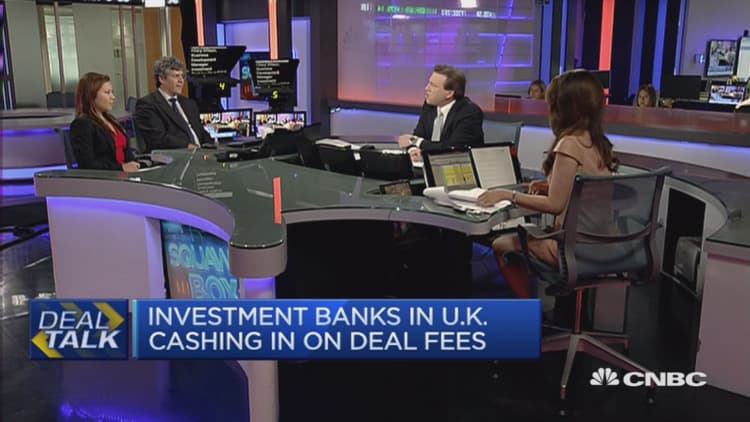
It's only a matter of time before U.S. banks operating in the United Kingdom and European Union have some potential regulatory and staffing issues to sort through as a result of the U.K. Brexit vote in June.
But it may not be the issues that the pundits projected.
In the immediate wake of the Brexit referendum, reports surfaced projecting mass layoffs at U.S. banks' U.K. arms; Morgan Stanley issued a denial to a widely-circulated story . But, according to one expert, bank staffers may have little — to nothing — to sweat.
"I'm not sure it's going to be layoffs; it's going to be shifts of employees," said John Stadtler, U.S. financial services industry group leader at PwC. "Post-Brexit, you will have more jobs in countries in the European Union and U.K. The question is, where those jobs will be."
So while U.K. bankers may not be wise to lay out a down payment on a mortgage quite yet, they also may still have brighter days ahead. It just could require moving to another country.
Another unanticipated ripple effect from Brexit is that U.S. banks could grow bigger, not smaller. They will need to expand their presence in the EU, and that could be done by buying a bank with all the necessary regulatory approvals in place. American firms have for years had their key European operations centered in London, but when the Brexit is complete, U.S. banks and insurers will have to head somewhere else. For some, that may mean acquisitions.
At a time when most large U.S. financial institutions are effectively restricted from growing much larger at home, thanks to post-crisis regulation, a July PwC report titled "Not just across the pond: How U.S. financial institutions prepare for Brexit," suggests that they may have to engage in M&A in order to meet their new requirements. Maintaining European Economic Area (EEA) passporting rights, or being allowed to continue EU operations, could require making a deal, the report said.
There's a potential upside coming to the U.S. economy, and potentially to U.S. banks, as a result of the Brexit.
Kim Betancourt, director of economics and multifamily market research with Fannie Mae, said that international investors looking to sidestep U.K. and EU volatility may aim to hedge against bets by investing in the United States. One business that Betancourt said may get a boost is the multi-family housing industry in the United States.
"Multi-family in the U.S. is a safe bet at this point," Betancourt said. "The home ownership rate has been falling."
Expanding multi-family projects would be a boon to real estate developers, but also potentially to banks, which would likely benefit from issuing more commercial backed mortgage securities to support increased building. A dearth of millennials buying homes has led to a rise in multi-family units, like apartments, being viewed as a more sound investment.
Just don't expect any big fallout, either way, anytime soon. The report suggested that no formal Brexit could come until the beginning of 2019, if even then. British Prime Minister Theresa May has stated that she wants to begin the process that would move the U.K. out of the EU early next year, but there is little that holds her, or the Brits, to an actual formal requirement.
"She has no timetable," Stadtler said.


